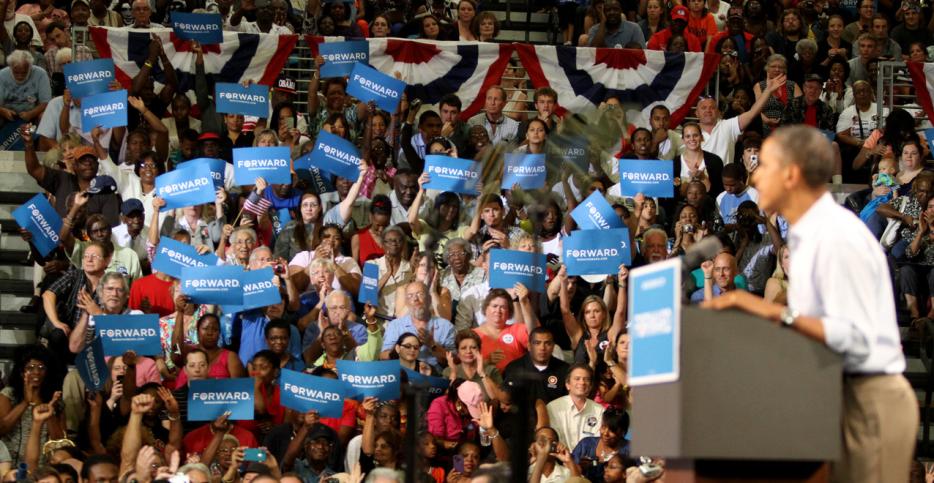For much of the 1980s and ‘90s, American political campaigns were run by a shadowy cabal of consultants. These men and women were paid to help candidates win elections. As for how they did it—well, there was no protocol. If an ad campaign worked once, some version of it would be used again. For all the money being gambled on their expertise—Al Checchi’s failed gubernatorial run in 1998 cost him 42 million dollars, with two million going to his consultants—their work was shrouded in mystery.
But as Sasha Issenberg writes in his latest book, The Victory Lab, the game changed once eggheads got involved, applying the scientific method to campaign politics. Political scientists, data analysts, and behavioural psychologists began conducting field tests on the electorate: one experiment in 2004 involved sharing public voting records among neighbours to test the effectiveness of shame on getting out the vote. (Although it worked like gangbusters, analysts decided it was too risky to apply on a large scale.) Data analysts have developed complex algorithms that can predict voting patterns based on consumer habits—type of car, magazine subscription, brand of deodorant—a practice known as “micro-targeting.” The consultant’s intuition has been discredited.The new methods are high tech, precise, and effective.
I must admit I was worried—a computer that can predict how I vote? Sounds like the death knell for modern democracy. All hail our fascist robot overlords! So I sat down with Mr. Issenberg to discuss the implications of data-driven campaigning. Not only did he placate my fears, he reaffirmed my faith in campaign politics.
In 2006, Dave Carney, Rick Perry’s campaign strategist, hired two Yalies to work on Perry’s gubernatorial campaign. Why was it such a pivotal moment for the American campaign industry?
It was sort of this amazing thing where these academics, who had existed entirely on the outside of the campaign culture, were now being invited into the epicenter. And what was so great about it, just from a storyteller perspective, was that there was this great culture clash: two guys from Yale in a roomful of Texas Republican consultants. Political consultants had been making a lot of money basically doing the same thing over and over again, and then academics developed this tool to finally test the effectiveness of what they did on a granular level. There’s a fundamental tension between discrepancy and expertise, which is sort of at the core of what this book’s about: people coming to terms with how to innovate [their] assumptions in a bizarrely hardened industry.
The idea of micro-targeting—that is, tracking voters on an individual level using thousands of different variables—seems a little intrusive. What do you think?
I think people are surprised by how much information exists about them, and more to the point that it’s all been consolidated in one place. So people might not be surprised that the supermarket keeps some record of what you buy, and that your gym keeps a record of your membership. [But] I think that people are surprised to learn that there are companies that exist solely for the purpose of pulling all that stuff together into a single record that can be sold to anybody who wants to buy.
That said, all that information is stuff that we part with willingly, and the most valuable is often information we know we’re giving away, even if we don’t really have idea of what will happen to it. Companies aren’t just giving away Corvettes in a lottery drawing because they want to make somebody really happy; it’s because they want you fill out that card, and it’s worth it to them to give away a car, to get thousands of people to tell them what their household income is, and I think we intuitively understand that. Campaigns are using it all with the goal of figuring out how to meaningfully communicate with you on issues that you care about, or to honestly assess your interest or likelihood of participating.
People are making assumptions about you, but everybody’s making assumptions about you already. Nothing arrives in your mailbox by accident, all marketing is being informed by that information. I don’t know why we wouldn’t want political campaigns to know as much about us as a department store. Political campaigns want to know about you because they want to communicate with you on matters that they think you’re more likely to care about, and so that, I think, is a good thing.
Should voters be concerned that political campaigns have the ability tailor their message to appease each constituent? Would this not affect their accountability, by which I mean, if they’re able to tell everyone what they want to hear, then how can we be sure what they actually believe?
The basic fact is, if you look at any campaign, whether it’s for President of the United States or city council, most voters tend to care about the same two or three things. So yes, Barack Obama could have had a million conversations with voters on different issues, but they do a poll and it says 60 percent of the population cares about jobs or the economy. Once you take into account the next two or three issues, you’ve covered just about everybody. Barack Obama could go find the 9,000 people in Indiana who care about fur tariffs, and just talk about fur tariffs, but they probably want to hear about job creation just like 180 million other people do.
So that’s part of the limiting factors of [micro-targeting]—you can’t keep on finding nichier, or more boutique issues for people because those won’t be the issues that people care about
If the outcome of the last election is any indication, do you think the Democrats have gotten better at integrating micro-targeting into their campaign strategy?
I think at the core of it, what we call “field” or ground-level campaigning is something the Left has always done more of, because there are reasonable strategic incentives for Democrats to focus more on mobilization: their core constituencies vote at lower rates than Republicans. There’s more room for growth among young people and minorities, and young women, who vote at the lowest rate of the population. Old white people vote at the highest rate of the population, so if you have a party where your coalition is based around old white people, there’s just less room for growth.
So fieldwork is something that really defines the Democratic Party?
Republicans have always treated fieldwork like an afterthought. It tends to be treated as something that, if you’re a young ambitious person, you do once and then you graduate to doing more prestigious things like becoming a press secretary, or working on the Hill. Whereas people in Democratic politics rise by doing fieldwork. Jim Messina, Obama’s campaign manager, earlier in his career was a kid running one of those field offices. The people who are making the top decisions in the Republicans campaign often never had that as part of their formative political experience and so they don’t really value it, and I think that’s the sort of baseline cultural disconnect. Why would you invest in data or research that’s refining your ability to be smarter about knocking on doors if you don’t really think of knocking on doors as something that can be done well, or badly.
Throughout the 2008, and 2012 campaign, Barack Obama’s past as a community organizer was often spoken of derisively by the right. It appears he got the laugh.
Republicans sort of make fun of Barack Obama for opening up all these field offices. They tend to portray it as busy work. So they’ll talk about the volunteer culture around that campaign as though it’s a feel-good thing, like it’s kids in the parking lot at a Phish concert, playing hacky-sack. The only reason you have this sort of patronizing attitude towards it is if you don’t understand what volunteer workers do. And it’s not a mystery anymore. Twenty years ago it was a mystery, because we didn’t have the tools to measure what happens when somebody knocks on a door. But [with] the introduction of these experiments, first in academia, and now in the campaign, we now know that knocking on a door with a certain script will increase turnout among people by a couple of points.
So it’s not like you either have the feel-good community-building thing, or you run a ruthless campaign. If you are running a ruthless campaign in the 21st century it’s because you recognize that’s shit you cannot buy with TV ads.





